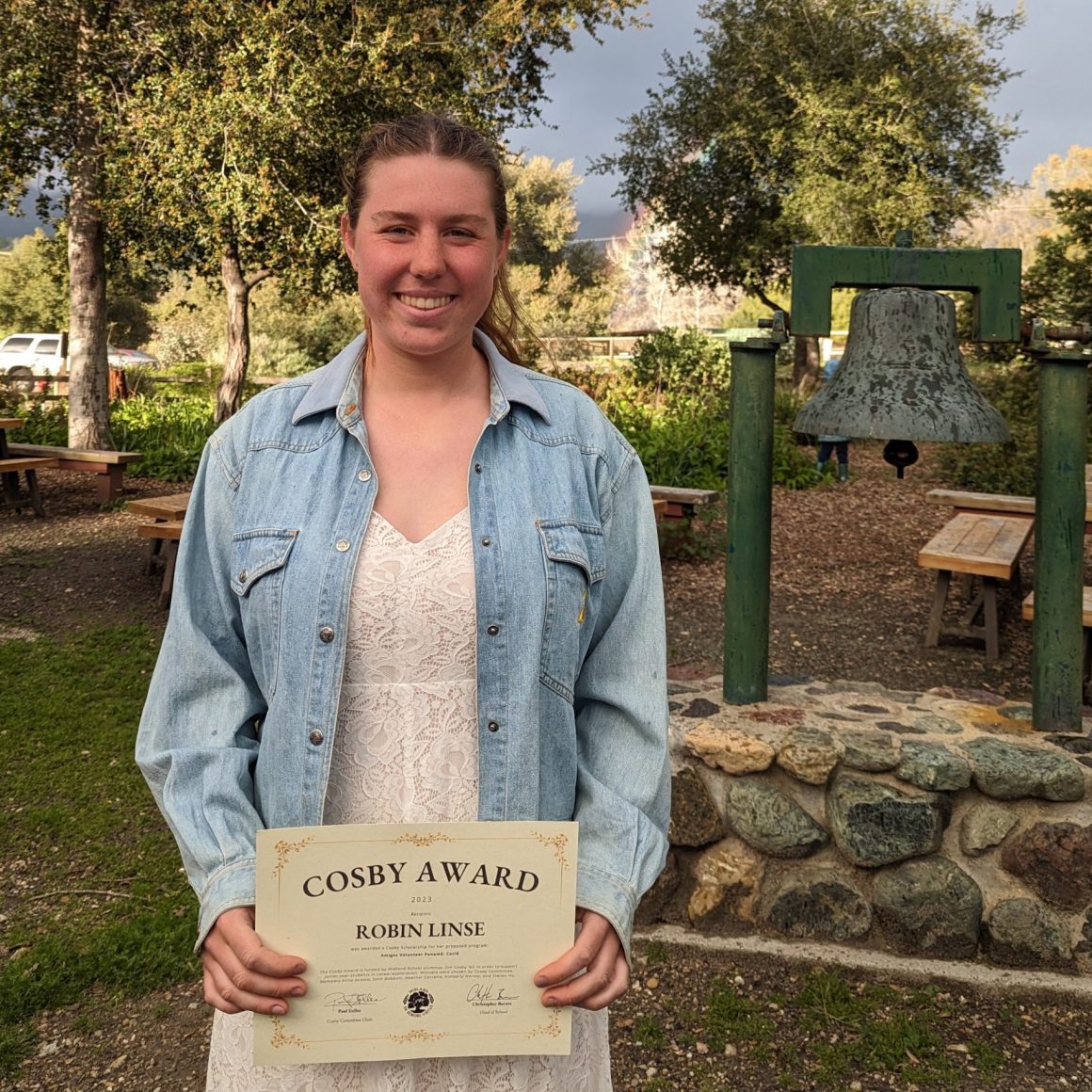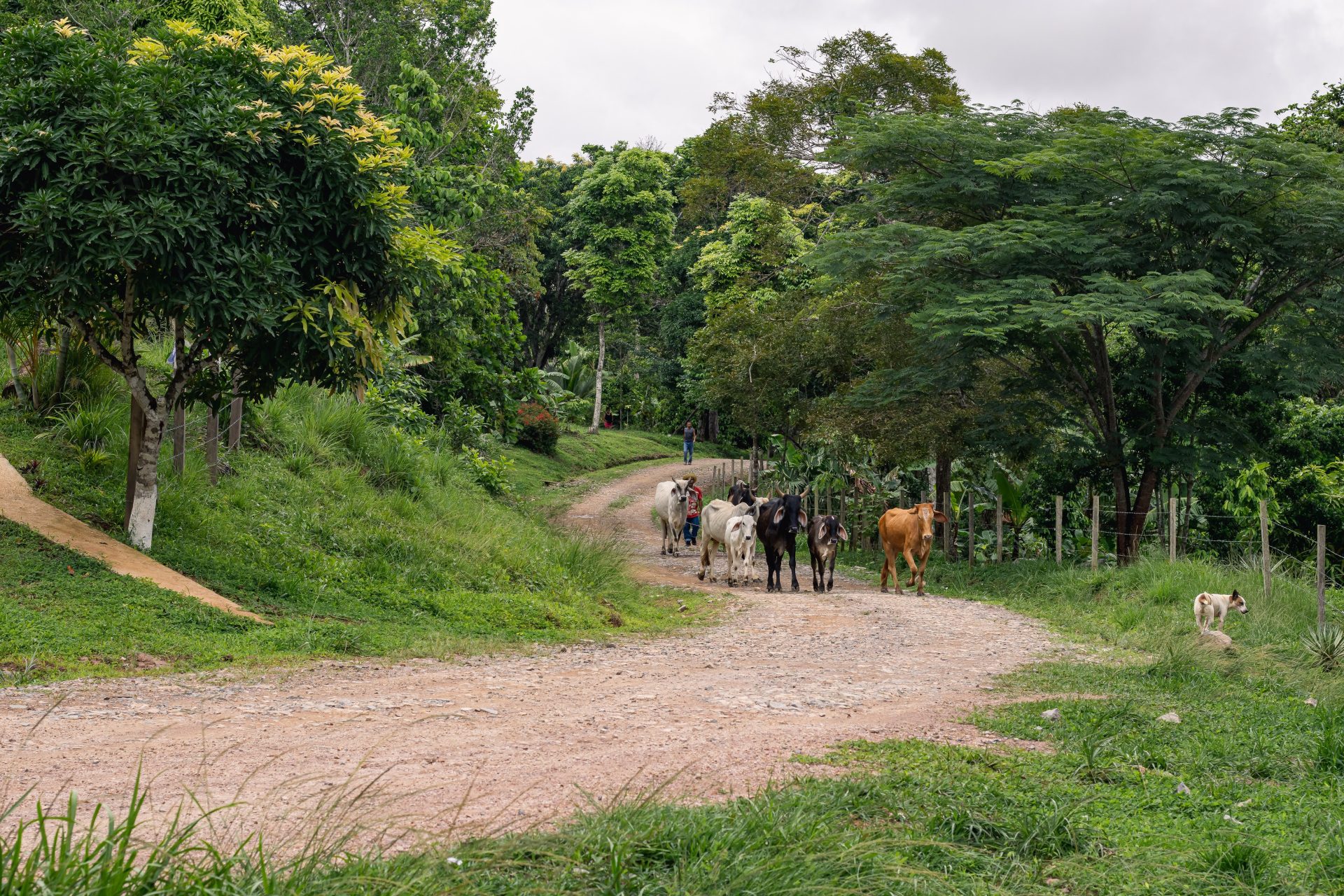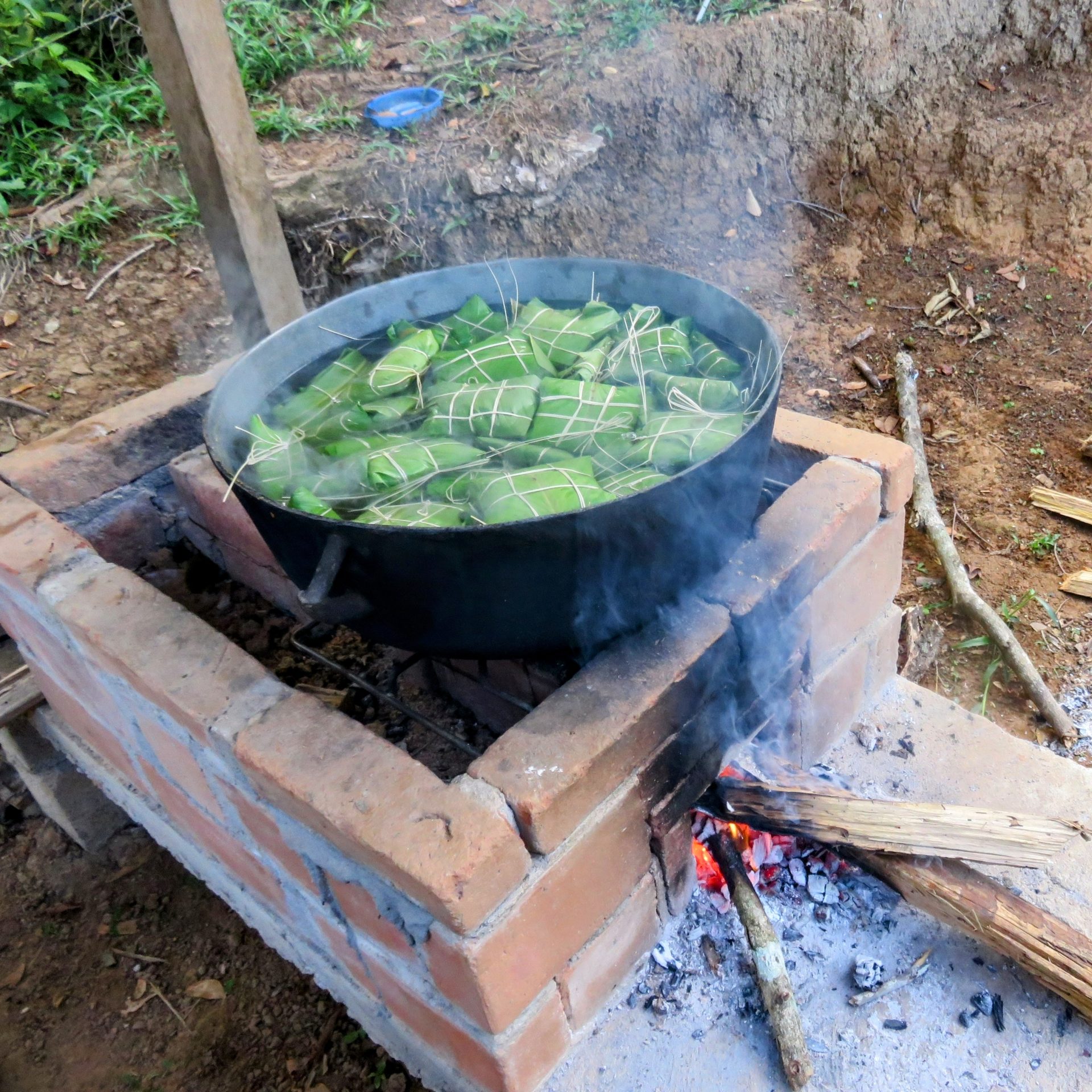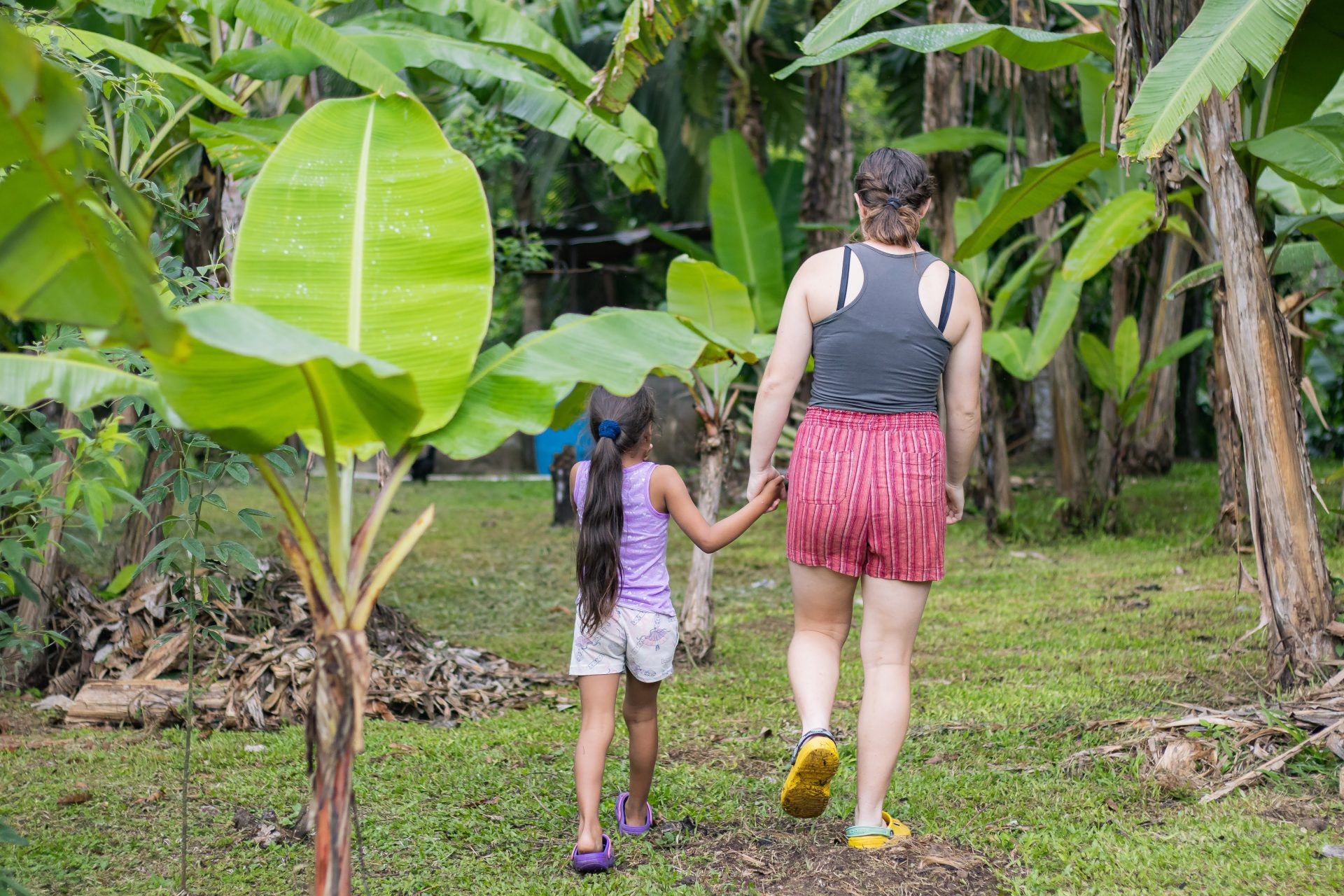Contact Information
-
MAILING : P.O. Box 8, Los Olivos, CA 93441
The Cosby Award supports Grade 11 students to pursue their career interests in the summer before their graduating year.
 We sat down with Robin to learn more about her experience with Amigos.
We sat down with Robin to learn more about her experience with Amigos.
Why did you choose to apply for this particular program?
I was looking for something focusing on Spanish Language and cultural immersion. It was a career path I was interested in at the time, although I didn’t know what specific facet of culture I might want to study. I grew up speaking Spanish with my dad, and I already finished Spanish 5 last year at Midland. So I wanted to improve my language abilities and explore other people’s perspectives on the world.
I chose Amigos in Coclé, Panamá because this program, instead of focusing primarily on volunteer work, was more about cultural exploration. Amigos has three pillars, and the one that spoke to me the most was ethical service. They have in-depth training both online and in-country to prepare volunteers for exploring a different culture. They have something called the ABCD model of community development for communities which allows you to take a partner role that benefits the community and what they want to do. You, as the external volunteer, are not deciding anything that’s going to happen.
What influenced you to seek out this type of program and philosophy?
I’ve learned a lot about the U.S. involvement in Panamá, which historically showed negative impacts. Considering how privileged people have swooped in to “save” communities in “developing” countries, I knew I had to make sure I was doing more good than harm.
How did you prepare before you were there on the ground?
We had about four hours of asynchronous content training. We had language assessment classes with a bunch of Amigos people who were from all over the U.S. and all over the world. That was the group I’d be going with to Panamá. That was when we learned more about what we would pack and what we would actually be doing there, and it was focused on how to do ethical service and the type of leadership we would be doing. One other pillar is leadership. How to step up, how to step back. What your role is in the community. What it’s like living with the host family and things like that.
When we got into Panamá, there was about a week before we even started going to homestays. We’d go with the other Amigos volunteers and we stayed in Santa Clara. It was by the ocean and farther away from the communities where we would be staying for the majority of the program. We did teambuilding and focused on learning leadership skills. We learned some local slang and more things about the language.
How was it speaking Spanish in a different place, with its own slang and regional characteristics?
It was definitely different. Words like water bottle and socks are completely different words from standard Spanish in the local dialect. There are a bunch of different words for rain, since during their rainy season, flooding is common. This allows people to describe the weather with more detail according to what they experience.

The village that hosted Robin during her stay.
What was the most difficult aspect of immersing yourself in village life?
My partner had only taken the minimum two years of Spanish, so I translated a lot. That allowed me to really step up and communicate with the directors of the schools and lead programs for people my age, in Spanish. The students were Pre-K through 12th grade. We would work in schools. I also communicated with the host family and my partner. I didn’t expect to take on this kind of role in leading communication, and it was challenging, but in a good way.
What kind of projects were you involved in during your stay?
It was very different from what I expected. The plan was that it would be the first time the organization had partnered with the Ministry of Health for this village. I was expecting to work on mosquito-borne illnesses. However, the Ministry of Health didn’t actually respond to any emails or didn’t show up during our stay. We ended up being able to design our curriculum. It was really cool because nobody in my village had hosted people from the U.S. before. I would walk door to door and walk around with my host family and figure out things that they wanted help with. I’d sometimes walk around by myself. I’d see people farming and ask if they wanted help with the yucca.
I also spent four to five hours teaching classes. It was called giving charlas, it wasn’t a full class. We would talk about leadership and civic participation, environment and community life. The participants were from Pre-K to Grade 12 and we had scheduled classes during the day.
Is there any lesson you remember that was particularly engaging?
We were teaching little kids animals. They already knew all of the animals. They wanted to know animals that the U.S. had compared to Panamá. We had a map and we pinned the animals on. They drew all of the animals themselves. It was a two-hour class. They learned a lot. They didn’t want us to leave!
What did you learn about yourself as a teacher and a leader?
I had never really been put in a situation, even speaking in English, to lead a group by myself. Going in and doing it in a different language, with people that I didn’t know, was a little scary at first. After even the first day, it gave me the skills to communicate with anyone, no matter their age. I would have to coordinate with the teachers in order to plan when we were giving the lessons. It gave me more confidence to talk to people who I didn’t know.

Tamales being cooked the traditional way.
Did you eat or learn to cook anything special during your time?
To make tamales, first you must plant the corn, water it, harvest it, grow peppers and onions, and raise chickens too. Only once you have those ingredients can you wake up at 4:00am to grind it, knead it into dough, make patties and fill them with the sauteed peppers and onions, and spicy ‘gallina de patio’, or the home-raised chicken. Finally, you wrap it in plantain leaves and boil it on the fogón.
The love put into making that common Panamanian dish is reflected in how the people of El Caimito, Coclé, Panamá invited me into their homes to play bingo for hours, taught me how to build a cement wall, swam with me in the raging Las Lajas river, and walked with me to see the cows, monkeys, pigs, chickens, and horses at the family farm. Panamá, nunca voy a olvidarte. Panama, I will never forget you.
How do you feel this experience expanded your worldview?
The lifestyles are very different. Most people work on subsistence farming. They’ll ride their horses into town. They don’t really have cars. Or they’ll use the bus system. Considering one’s view of life as a whole, I learned a lot more about how to just go with the flow and not stress the little details. Even with jobs there, things are in a constant state of motion. If it’s heavy rains and very high humidity or very hot, they will adapt and work around the natural environment and other people’s schedules. There is really no stress around that type of thing. Their idea that I’ve understood is that it will all get done eventually.
How has this experience informed your future plans?
Going into it, I thought it would make me take a deeper look at international relations and international development. My dad did the Amigos program in Belize in the ‘80s and a lot of his friends went into those fields. Coming out of it, I wanted to take a deeper look into Anthropology and Journalism. I’m interested in exploring the cultural aspects of observation and storytelling.
What advice do you have for other students who are considering applying for the Cosby award?
Definitely consider where you’re going. The places that you have the opportunity to go with cultural immersion programs are all very different. It should inspire you to continue traveling and seeing more of the world for sure. If you at all want to do a cultural immersion or a language program, it can be a great step in building your language fluency and intercultural competence. I got out of it being fluent in Spanish, dreaming and thinking in Spanish.
What’s next for you?
For my senior project, I’m planning on building out the back of my dad’s truck so I can do longer road trips. You have to be 18 to work as a program director for Amigos. So the following year, I’d like to apply for that. Your main job is to go from community to community to help the volunteers connect and to go source and support the projects within the communities.
Robin, thank you for taking the time to tell us about this experience and how it impacted you.

Robin walks with one of the young children from the village.
Interested in Becoming a Midlander?
Continue exploring the Midland experience